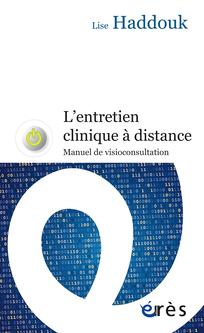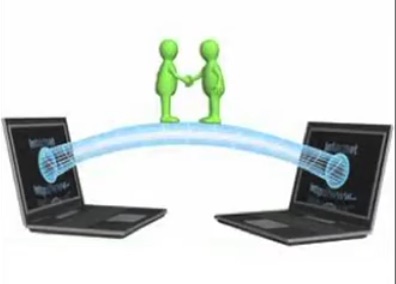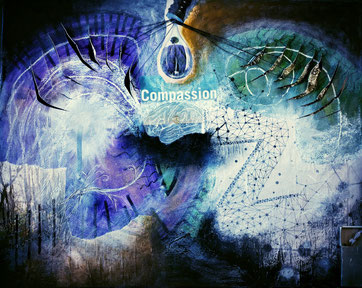Entretien clinique à distance en visio-consultation
30 janv. 2018
Lise Haddouk : Maître de Conférence en Psychopathologie chez Université de Rouen
Créatrice de iPSY depuis nov. 2011. Avant tout, il s’agit d’un dispositif en ligne iPSY, permettant la réalisation de consultations psychologiques en visioconférence.
Par ailleurs, elle est psychologue clinicienne à l’OSE (œuvre de secours aux enfants) et en cabinet libéral (Paris).
En outre, qu’est-ce que la relation virtuelle ? La relation médiatisée par l’écran : relation en miroir ou relation d’objet ?
 Pour aller sur le lien du livre en ligne, cliquez sur la couv.
Pour aller sur le lien du livre en ligne, cliquez sur la couv.
Après avoir exercé une dizaine d’années comme psychologue clinicienne dans un service d’accueil téléphonique, l’auteure a conçu et expérimenté un dispositif d’entretien clinique à distance via internet qui s’approche le plus possible du cadre classique.
Par ailleurs, son but n’est pas de remplacer la consultation dans le bureau du psychologue, mais d’augmenter les possibilités d’une écoute clinique, dans des situations où, pour diverses raisons, elle est limitée.
Entretien clinique à distance en visio-consultation
En d’autres termes, comment adapter la consultation d’un psychologue à la relation assistée par ordinateur, tout en préservant la dimension symbolique de l’échange dans un espace tiers ? Qu’en est-il de la place du corps et du regard en visioconsultation ? Comment travailler avec la réalité psychique à distance, sans tomber dans le piège d’une relation en miroir ? Qu’en est-il des processus transféro-contre-transférentiels apparaissant dans ce cadre ?
Quoiqu’il en soit, Lise Haddouk présente ici la méthodologie et les spécificités de ces entretiens qui allient les apports des nouvelles technologies à ceux de la théorie psychodynamique. Son travail s’inscrit dans le champ de la cyberpsychologie (psychologie du numérique) à la frontière de la psychologie cognitivo-comportementale, des neurosciences et de la psychologie sociale qu’elle enrichit en intégrant l’apport de la psychologie clinique d’inspiration psychanalytique.
Haddouk, L. (2016). L’entretien clinique à distance: Manuel de visioconsultation. Toulouse, France: ERES. doi:10.3917/eres.hadd.2016.01.


